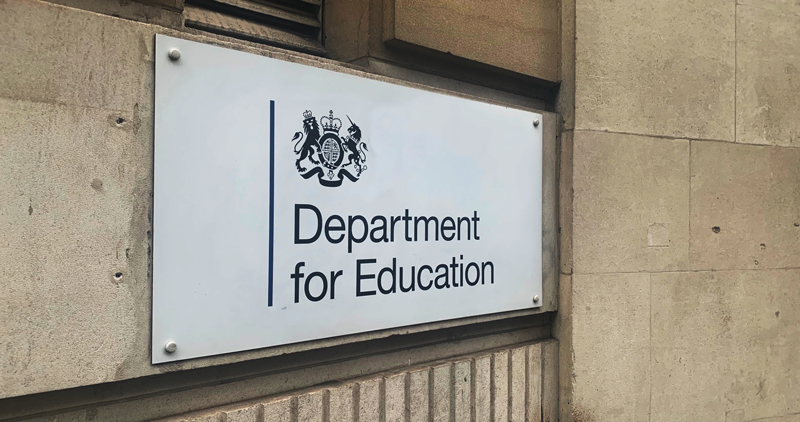The government will update its guidance for schools on the physical restraint of pupils and other “reasonable force” for the first time in a decade, according to a new consultation on the issue.
It comes after an inquiry by the human rights watchdog found “inconsistency and uncertainty” over what schools should include in their restraint policies, and found a “significant proportion” wanted “better and more specific guidance”.
Under the law, school staff have the power to use reasonable force, but only to prevent pupils hurting themselves and others, from damaging property or causing disorder.
But non-statutory guidance has not been updated in almost 10 years, and schools’ use of the power to restrain children has been questioned in several recent high-profile cases.
In a call for evidence launched today, the Department for Education said it supported school staff to use reasonable force “when it is safe, lawful and absolutely necessary”.
But government also “recognises that the misuse of reasonable force or restrictive practices can have a significant and long-lasting effect on the pupils, staff members and parents involved, as well as the wider classroom”.
This in turn can “potentially hinder the creation of a calm, safe and supportive school environment”.
Ministers are “therefore committed to minimising the use of reasonable force, including restraint and other restrictive practices in all schools in England, including special schools and alternative provision”.
Guidance has not been updated in a decade
Its work programme will include updating the government’s “use of reasonable force” guidance, which was issued in 2013.
It is non-statutory guidance that advises staff on “how to minimise the use of restraint and in instances where it is absolutely necessary and lawful to use reasonable force or restrictive practices, to do so as safely as possible”.
The call for evidence will focus on how use of reasonable force affects pupils, including those with special educational needs and disabilities, and how school leaders and staff minimise the need to use force while ensuring a safe environment.
It will also look at how leaders and staff ensure that when force is used, it is used “safely and effectively”, and how schools record incidents and report and use the data.
The consultation will also explore how schools support pupils, parents and staff affected by the use of reasonable force, and how schools meet their duties under human rights, equalities and children and families law.
Watchdog inquiry found schools wanted guidance
It comes after an inquiry by the Equalities and Human Rights Commission found in 2021 there was “inconsistency and uncertainty about what should be included in school policies governing the use of restraint”.
Schools’ recording practices were “not consistent and they need a better understanding of what constitutes restraint, and what they should record”.
The inquiry also found a “significant proportion of schools want better and more specific guidance”.
“They do not consider these matters to be ‘red tape’ or overly burdensome.”
The EHRC recommended mandatory recording and nationally agreed definitions of different types of restraint, as well as requiring schools to publish a policy and analyse use of restraint.
It also called for national training standards and for Ofsted to monitor data.
The DfE said it remained committed to “mandating recording and reporting of incidents of restraint to parents”.
The department will also “consider developing and delivering additional targeted policy interventions following the evidence gathering phase of this programme of work”.















The Government needs to scrape Corporal Panishment in the schools. My child is broken as teachers are also often too unfair with
discipline and “inclusion” as removing a child from classroom for little things means a child misses learning for a whole day! Results are now bad due to frequent inclusions.
I think discipline needs to come back to schools as expelling children does not teach them respect as alot of secondary school pupils will misbehave just to be expelled on purpose.
I understand that safe guarding has to be in place but pupils are allowed to hit out and use bad language and purposefully damage school premises and its not right.
Why should parents be punished for the damage when it’s not there fault as there child is making sure they are expelled by such conduct because they don’t want to learn.
Pupils should experience boor camp or national services to teach them respect as our generation never mouthed our elders .
You has respect for those who taught you and your family and you didn’t bad mouth anyone as you were taught to respect their sacrifice for your freedom.
They will find it hard to live if they don’t have jobs or money to support their lifestyle that they think is so tough.
Put them in army situations just to respect leaders if nothing else.
Something needs to be done before the next upcoming generation is out of control beyond police intervention too.